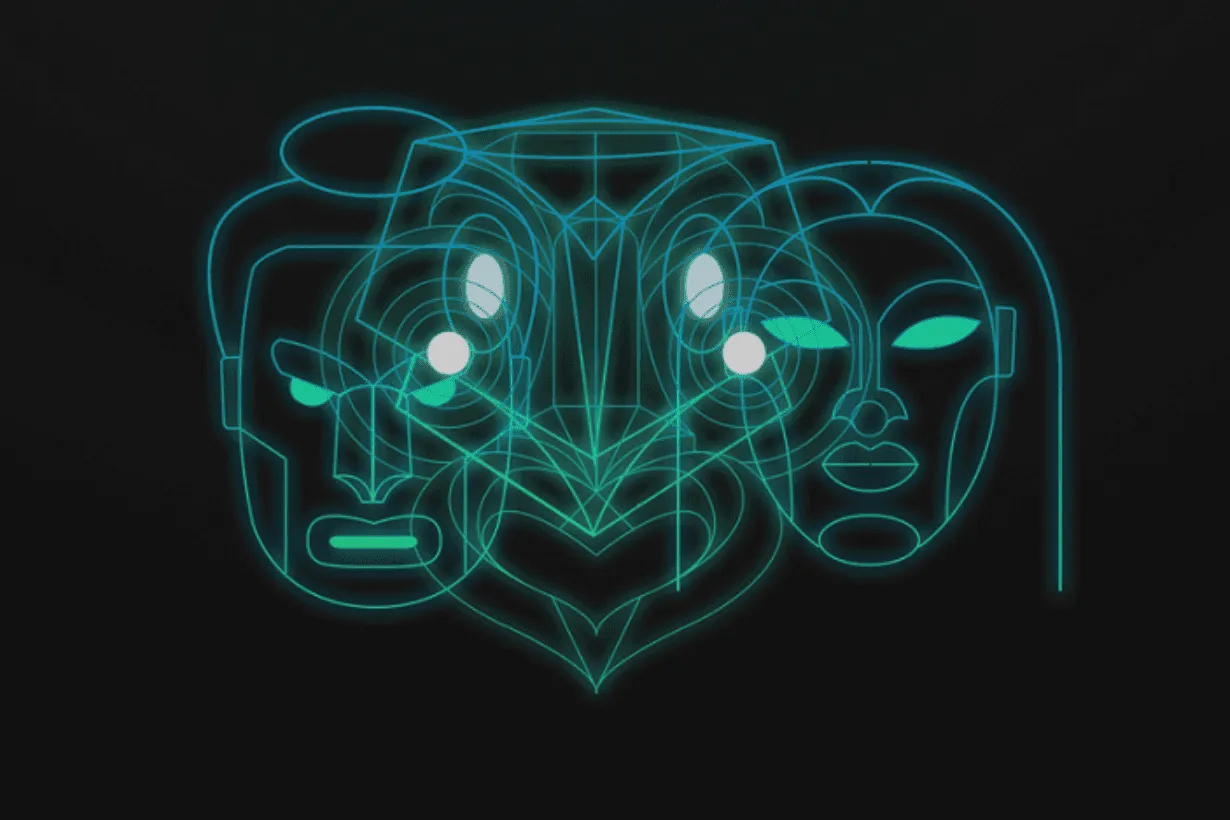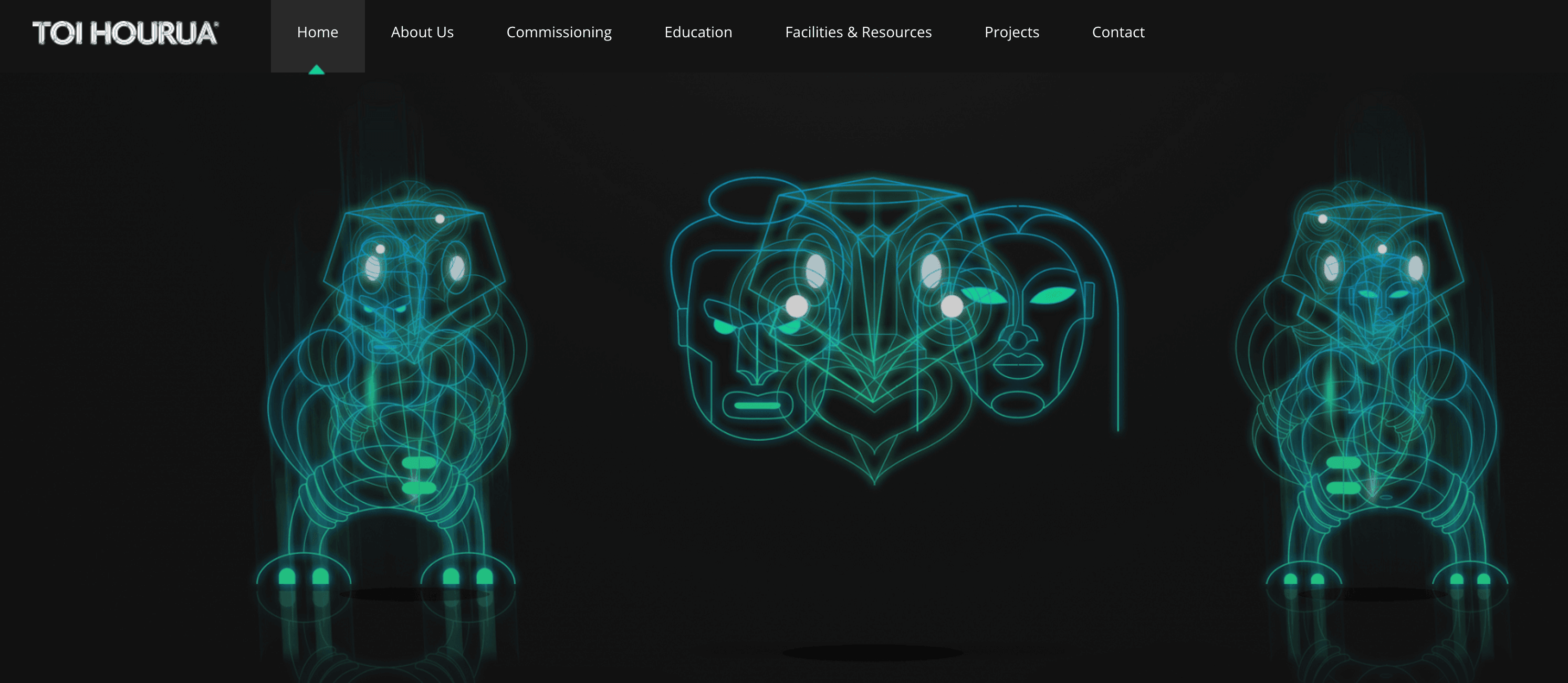Toi Hourua No Longer Receiving Creative NZ Funding
One of the most controversial funding decisions of recent years, the Digital Arts Commissioning and Capability Service partnership between CNZ and We Are Indigo has ended two years earlier than expected.

Creative New Zealand’s controversial Digital Arts Commissioning and Capability Service seems no less problem-prone over a year on, but the saga seems at last at an end - even if we are left with more questions than answers.
The decision to award the $5.3 million contract to polarising tech innovation company We Are Indigo - who attracted negative headlines through one of its subsidiary businesses, Manaaki - rather than go with a company more imbedded in the creative sector raised many eyebrows.
The contract was to be delivered under a new company called Toi ki Tua - this was renamed Toi Hourua, with Dawson Marama-Feagai (Ngāti Whakaue, Te Arawa) as its Chief Executive Officer and the mission of advancing digital capability, fostering creativity, and promoting the growth of digital arts through digital commissioning opportunities.
The contract was met almost immediately with concern from the arts community, particularly centring on accusations that the parent company We Are Indigo had a culture of bullying smaller Māori and Pasifika businesses.
US-based Kiwi entrepreneur Robett Hollis lodged an Official Information Act request for more details on the due diligence process behind the contract and was frank in his concerns in an open letter to CNZ.
In February 2023 CNZ sent an email to select members of the creative community asking if they wanted to be part of a focus group "to influence the shape of their digital arts services for artists and arts organisations in Aotearoa."
The organisations were asked to confirm their interest by 8 March, with discussions to occur between then and August, with the goal of establishing “baseline evidence and data on digital capability and opportunities in the creative arts sector.”
The Big Idea spoke to creatives who were invited to be part of the focus group but felt uncomfortable with the process of sharing insights they've scrapped for over many years, as well as being offered koha by an organisation they have no relationship with and that had been awarded $5.3m, “almost twice as much as an entire CNZ Annual Arts Grant cycle”.
According to LinkedIn, Marama-Feagai was only with Toi Hourua for a year and seven months. He had previously worked for a year at Toi Mai, the Ohu Ahumahi Workforce Development Council for Ngā Peka o Toi, for a year. She departed his role at Toi Hourua in Jun 2024.
Fom the end of 2020 to the present, Marama-Feagai is listed on LinkedIn as Founder and Managing Director of iRangatahi Ltd, which is registered for the purposes of incorporation as educational support services but has no online presence.
The reason why Marama-Feagai left his role at Toi Hourua is not clear, nor is it clear who is currently running the organisation. The Toi Hourua website lists their team as being Senior Project Contractor Katrina Iosia and Project Coordinator Torere Wilson.
Sector reaction
Various people in the digital media sector have spoken to The Big Idea on the condition of anonymity, raising their concerns regarding Toi Hourua’s performance.
Some have questioned Toi Hourua’s expertise in the area more broadly, as their background seems to be based in film and television production, as well as being AI heavy.
Some in the sector have raised the issue of bad communication and expressed disappointment in the wānanga held in the regions, one correspondent describing them as “superficial” and alleging that there had not been any collaboration with local training providers with digital arts programmes.
Much of the money appears to have been spent on a digital media hub in Auckland – in We Are Indigo’s former premises as it happens – but rather than offering opportunities for career development for people already working in the sector, the focus seems to be young people in or just out of school offering workshops in basic skills already covered by other providers in the centres and provinces.

Creative NZ response
CNZ told The Big Idea: “Toi Hourua was established in December 2022 to deliver commissioning and capability programmes to support the development of digital arts in New Zealand.”
“Creative New Zealand committed $2.075 million over the initial term of the contract from December 2022 to June 2024. Funding received from Manatū Taonga Ministry for Culture & Heritage’s Cultural Sector Capability Fund ($2 million) was used to support the establishment and delivery of the service with Toi Hourua.”
“This investment will contribute to growing expertise and support for digital art form development in Aotearoa. We understand Toi Hourua will continue to fulfil its purpose in a private capacity. Creative New Zealand sees this as a positive outcome for New Zealand’s creative sector.”
Responding to The Big Idea’s inquiry about this negative reaction from the sector, CNZ said: “While there were some queries about Toi Hourua’s engagement in the sector in its establishment phase, throughout our communication with Toi Hourua it’s been clear the organisation is committed to delivering high-quality programmes to support the development of digital arts in New Zealand.”
When asked whether CNZ had any direct oversight of Toi Hourua, the organisation declined to address the matter directly, but told The Big Idea:
“The initial term of Creative New Zealand’s contract with Toi Hourua formally ended in June 2024. The results from these programmes will continue to be seen over the coming months and we are working with Toi Hourua on a date for their final reporting.
“During the initial term, Toi Hourua delivered several initiatives including commissioning projects, capability building programmes, and grants for digital arts tools for the sector. The Arts Council (Creative New Zealand Board) has not extended the contract with Toi Hourua, which would have offered funding through till 31 January 2027.
“The contract with Toi Hourua ensured we were provided with regular updates and reports about Toi Hourua’s activities to commission and deliver digital capability initiatives for the arts sector.”
While not directly giving a reason for not extending the contract, CNZ told The Big Idea: “Creative New Zealand has responded to the current fiscal environment by looking at all expenditure and planning for fewer resources and carefully considering all spending.”
“Creative New Zealand has had a productive relationship with Toi Hourua and looks forward to seeing its ongoing work to develop and strengthen New Zealand’s digital arts capability.”
The Big Idea offered Toi Haurua the opportunity to comment on the situation but had yet to receive a reply at the time of this story's publication.